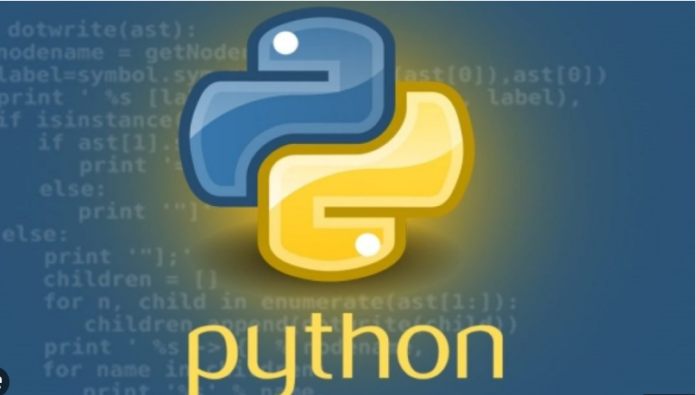Python has become a language of choice, not just for developers but more and more businesses are relying on it as the backbone of their operations. Just what has contributed to the uncontested rise in its popularity and what career and salary prospects can Python developers expect in the future?
Created in the 1990s by Guido van Rossum, who named it for the cult Monty Python’s Flying Circus, Python is a programming language that is relatively easy to pick up, as its syntax is straightforward and easy to read.
This can mean it’s a good choice for beginners, but experienced software pros are wise to its potential too. In fact, according to Stack Overflow’s 2023 developer survey, it’s only pipped to the post by JavaScript in terms of uptake.
Just over 40% of the survey’s respondents said the latter was the most desired language, compared to 39.81% for Python.
Rising salaries
TNW Conference 2024 – Group ticket offer
Save up to 40% with our Group offer and join Europe’s leading tech festival in June!
The survey also noted rising salaries, with 2022’s median yearly salary at $71,205 compared to $78,331 in 2023. In Europe, the picture looks a little different with junior developers earning up to €50,000 in Ireland, according to Morgan McKinley.
Glassdoor notes that in France, Python pros can earn between €40,000 and €53,000, while in Germany, you’re looking at a range between €45,000 to €80,000 per year, with the average pay packet rounding out at €62,500.
Named the Programming Language of the Year in 2021 by software company Tiobe in its annual Programming Language Hall of Fame rankings, Python also scored the top spot in 2020 and 2018.
In 2023, there were an estimated 15.7 million active developers across the globe, so what explains Python’s enduring and rising popularity—and why should you care?
According to GitHub, it remains the second most-used programming language on that platform. Developer adoption in general is on the rise in Europe with year-on-year growth in the number of developers in Spain at 25%, 22% in Germany, Italy, and France and 24% in Portugal using the language.
That’s not surprising when you consider the size of the European software market. Sources indicate that it will be worth $59.75 billion this year, climbing to $84.29 billion by 2029.
Python’s rapid pace
The rapid increase in the pace of digitalisation brought on by the pandemic is one part of the picture, but when it comes to why Python is so in demand, this extremely versatile programming language can be used for AI, machine learning, and quantitative and qualitative analysis.
Online data collection alone has increased companies’ requirements for data analysis, in order to drive business intelligence efforts. When we add in Python’s capabilities for programming applications, web development, game development, creating new programming languages, and developing graphic design applications, it isn’t hard to see why developers are so highly sought after.
It’s a particularly useful language for those working in fintech, finance, and neo-banking, due to its versatility and capabilities across key areas such as data analysis, web development, machine learning, automation, and blockchain.
Ultimately, the increasing complexity of web applications and websites, added to the rise of AI and machine learning is what’s contributing to the steady demand for skilled Python pros.
So which companies use it? It might be a better question to ask which companies don’t, because Python is used by an ever-increasing number of big tech companies as their primary language, including Intel, IBM, Netflix, Facebook and Spotify. YouTube is largely written in Python, and it’s one of four main languages deployed at Google.
This adoption is driving jobs, both in a European context as well as globally. If you’re in the market for a new Python role this year, then the House of Talent Job Board is your ideal starting point.
It contains thousands of software development roles, like these three Python jobs.
BNP Paribas in Nanterre is seeking a Python Developer for their IT Digital Marketing Solutions Business Unit. In this position, you’ll produce robust and maintainable code. You’ll be required to work on APIs (in Python) as well as on issues around ETL, BI, or the data warehouse.
In London, the Low Carbon Contracts Company is looking for a Python Microservices Engineer to support the UK Net Zero objective of creating software to help support low-carbon energy generation. This interesting role will see you work on a variety of projects including a digital platform for collaborating with generators, settlement systems, and data reporting services across nuclear, hydrogen, and electricity generation.
Or, check out this Data Scientist (Python Developer) job at Verisure Italy based in Rome. A 35-year leader in the sale of security systems across Europe, in this role you’ll lead exciting projects and ensure high-quality delivery. Responsibilities include identifying opportunities to exploit company data to guide solutions, and breaking down and analysing data to guide the optimisation and improvement of marketing techniques and business strategies.








